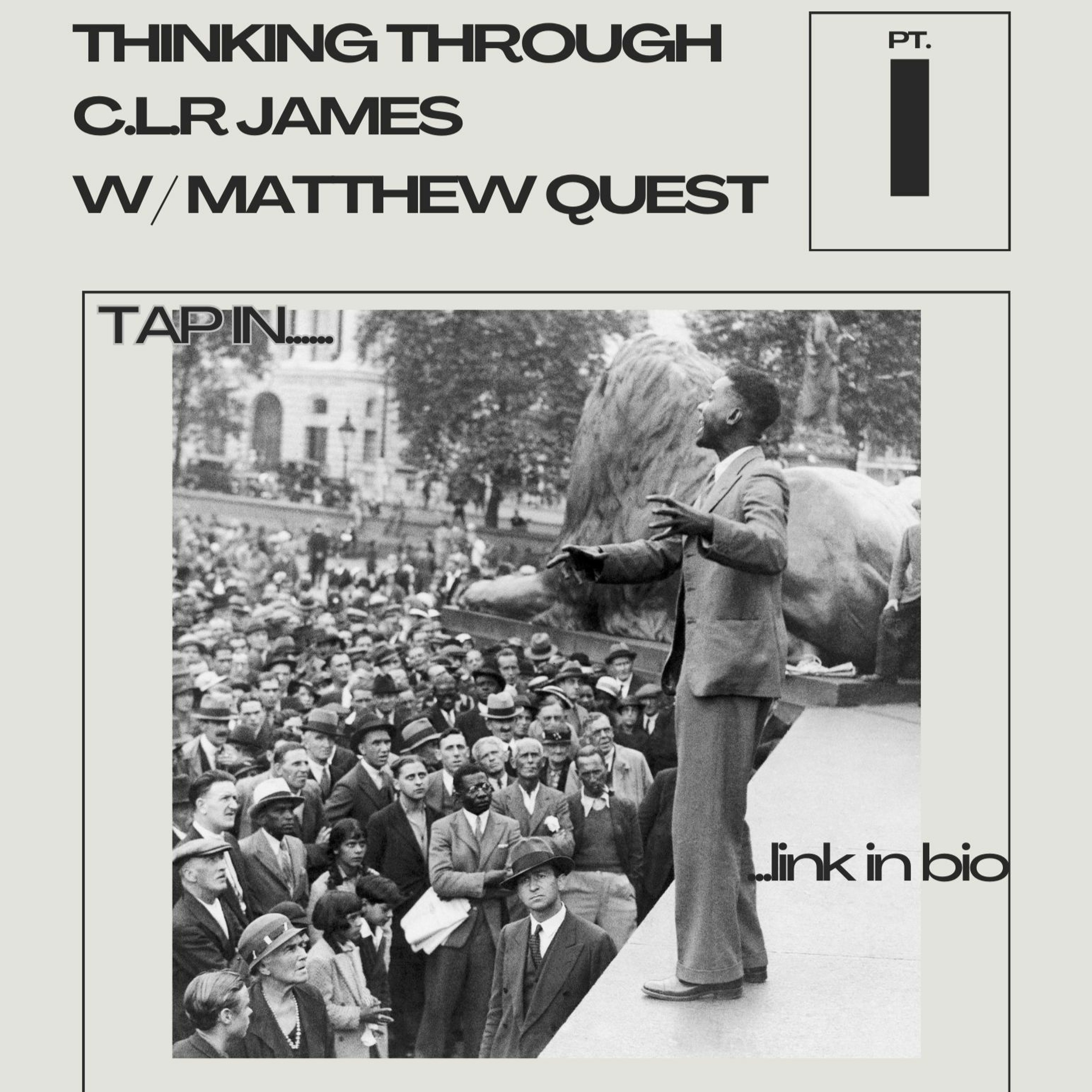Mar 08 2024 55 mins
In an article for Insurgent Notes, Matthew Quest asks, What Type of Historian Was CLR James? CLR James, native of Trinidad, was a historian with a speculative philosophy of history. He brought these methods to his narrative of Haiti in The Black Jacobins (1938), and later in his Nkrumah and the Ghana Revolution (1977). James was influenced by historians of the French Revolution, while his approach was shaped by Leon Trotsky’s A History of the Russian Revolution, Oswald Spengler’s Decline of the West, and the Edwardian radicals GK Chesterton and Hilaire Belloc, both literary men who wrote polemical histories sympathetic to the social motion of commoners. James’s Notes on Dialectics explored the intersection of Hegel and Lenin as applied to the history of the international labor movement. But his original view of dialectics was just as much informed by how he understood the craft of writing history. For James, dialectic did not mean simply history moved by contradiction. Rather history was a series of ruptures with hierarchy and domination. At his best, he did not read history in a manner that placed the development of the nation-state as the primary unit of study. For James, the working classes, be their wages high or low, and the unemployed possessed a hidden depth, a latent understanding, and a creative genius. Ordinary people, not professional leaders of official society, were the chief actors of history. Humans faced institutionalized oppression, but also partial hindrances they placed in their own path as part of pursuing freedom. History did not move simply by materialist laws, but by romantic elemental drives where the dispossessed pushed from behind those who aspired to lead or rule. Highlighting another important contribution of CLR James to Black radicalism, Matthew Quest unpacks his political economic analysis. Quest writes that CLR James is recalled as a Pan-African and independent socialist. A colleague and critic of anti-colonial politicians and activists (Trinidad’s George Padmore, Eric Williams, and Stokely Carmichael, Ghana’s Kwame Nkrumah, Tanzania’s Julius Nyerere, and Guyana’s Walter Rodney) James’s political economy was fundamentally different than his associates. While there are apparent moments of unity, especially around how the empire of capital underdeveloped Africa and the Caribbean through slavery and colonialism, or how federation might help enhance peripheral nation’s sovereignty, James was distinctive. He saw the state, party politics, democracy, and the working class in contrast to Pan-African and Marxist-Leninist orthodoxy. Today, we will explore CLR James’s thought, paying specific attention to his articulation of notions of direct democracy, worker’s self-emancipation, and meditations on autonomy with Matthew Quest. This conversation will be presented as a three-part series where we specifically explore CLR James as a frame of reference in the context of current labor struggles, the opportunities and potential limitations of demands within labor movements [where we think through the limitations of labor demands being divorced from direct critique of imperialism and colonialisms]; and how does CLR James’ conceptualization of autonomy and direct democracy have an important part to play in conceptualization of labor movements today. To understand the depth and range of impact of CLR James’s work, I would describe him as your ‘rappers’ favorite rapper’. Your favorite theorist, revolutionary, radical, Pan Africanist had to or at some point must come to terms with CLR James’s work. His influences are both undeniable and misunderstood. Matthew Quest has taught African, African American and Caribbean History at universities including Georgia State University in Atlanta, and the University of Arkansas at Little Rock. He is known as a scholar of the legacies of CLR James.
